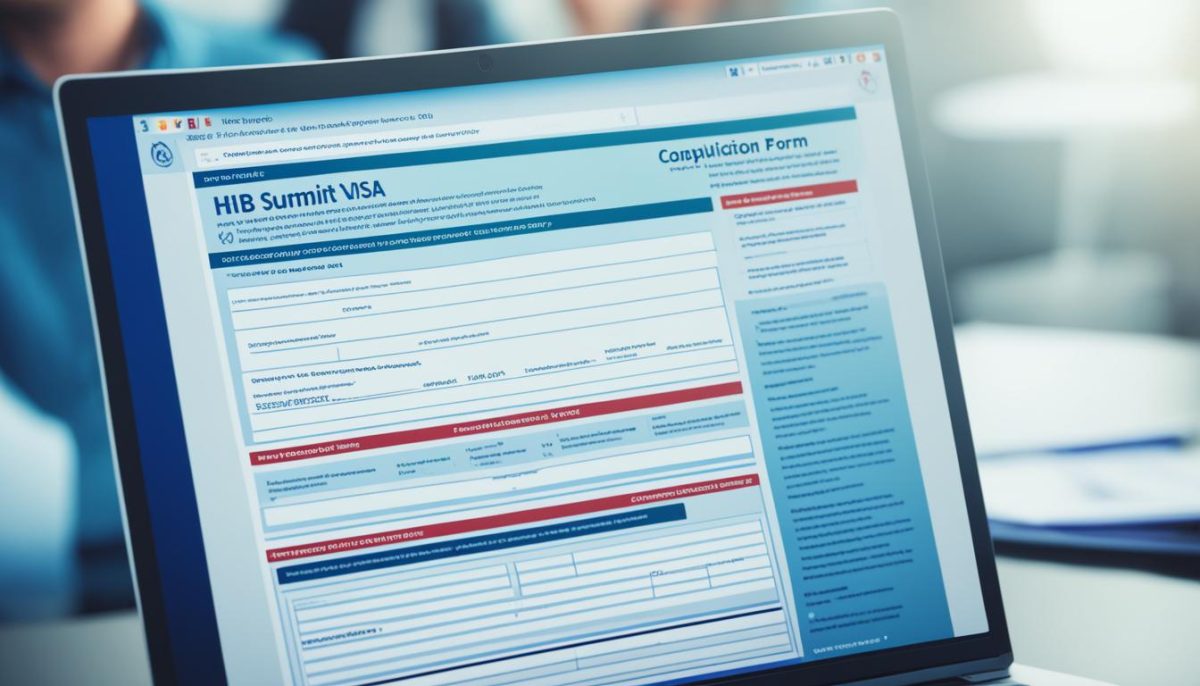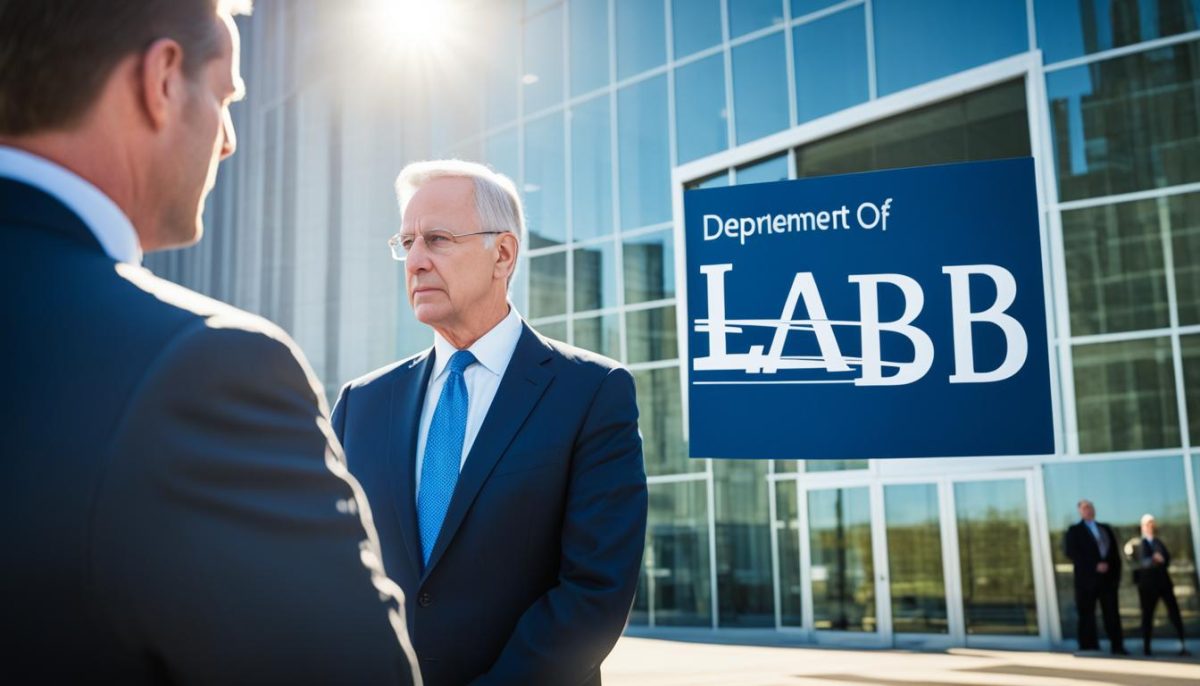The Department of Labor has recently launched an investigation into the H-1B Visa Program, underscoring the importance of compliance with its regulations. The H-1B Visa Program allows U.S. employers to temporarily employ foreign workers in specialty occupations that require specialized knowledge and skills.
This investigation aims to ensure that employers are adhering to the program’s guidelines and providing fair employment conditions to H-1B visa holders. By conducting this investigation, the Department of Labor aims to safeguard the rights of foreign workers and uphold the integrity of the H-1B Visa Program.
Compliance with the regulations of the H-1B Visa Program is crucial for both employers and employees. Employers must meet a set of requirements, including wage obligations and nondiscrimination rules, to maintain compliance with the program. Similarly, foreign workers must ensure that they are working in a fair and supportive environment.
This investigation by the Department of Labor serves as a testament to their commitment to maintaining the integrity of the H-1B Visa Program. It highlights the importance of upholding regulations and ensuring fair treatment of both employers and foreign workers.
Understanding the H-1B Visa Program
The H-1B Visa Program is a temporary employment program in the United States that allows skilled foreign workers to work for U.S. employers. This program plays a vital role in meeting the demand for specialized talent in various industries, including technology, engineering, healthcare, and finance.
Under the H-1B Visa Program, employers sponsor foreign workers who possess specialized knowledge or expertise not readily available in the domestic labor market. This program enables U.S. employers to fill critical skill gaps and remain competitive in the global marketplace.
Foreign workers seeking to obtain an H-1B visa must meet certain eligibility criteria. They must hold a bachelor’s degree or higher (or its equivalent), possess specialized knowledge or skills in a specific field, and be sponsored by a U.S. employer. Additionally, employers must demonstrate that the position offered to the foreign worker meets the standards of a “specialty occupation,” emphasizing the need for specialized knowledge.
Once selected for sponsorship, foreign workers can apply for an H-1B visa, which allows them to work in the U.S. for a specified period, typically three years, with the possibility of extension. The H-1B visa program not only benefits foreign workers by providing them with valuable employment opportunities but also benefits the U.S. economy by fueling innovation, driving economic growth, and fostering cultural diversity.
Benefits of the H-1B Visa Program
The H-1B Visa Program offers several benefits for both foreign workers and the U.S. economy:
- Access to Talent: The program allows U.S. employers to access a pool of highly skilled workers from around the world.
- Economic Growth: By filling critical skill gaps, the program fosters innovation, boosts productivity, and contributes to economic growth.
- Competitiveness: Employers can stay competitive in the global market by hiring skilled workers who bring expertise and diverse perspectives.
- Knowledge Transfer: Foreign workers bring new ideas, technologies, and best practices, leading to knowledge transfer and skill development among their U.S. colleagues.
- Cultural Diversity: The program promotes cultural exchange and diversity, enriching the workplace and fostering a global perspective.
In summary, the H-1B Visa Program offers a valuable solution for U.S. employers in need of skilled workers and provides foreign workers with the opportunity to contribute their expertise to the U.S. economy. In the next section, we’ll explore the compliance and regulations associated with the H-1B Visa Program to ensure the protection of both employers and foreign workers.

Compliance and Regulations of the H-1B Visa Program
Ensuring compliance with the H-1B Visa Program is crucial for employers and H-1B visa holders alike. The program’s regulations, overseen by the Department of Labor, establish employment conditions that protect the rights and interests of foreign workers in the United States.
Employers aiming to participate in the H-1B Visa Program must meet specific requirements to maintain compliance. These requirements cover various aspects, including wages, working conditions, and nondiscrimination rules.
Under the H-1B Visa Program, employers are obligated to pay H-1B visa holders the prevailing wage, which ensures they receive fair compensation for their work. This wage obligation prevents employers from exploiting foreign workers and promotes salary parity among similarly employed individuals.
Moreover, the program mandates that employers provide suitable working conditions for H-1B visa holders. This includes a safe and accessible work environment, reasonable hours, and compliance with applicable laws and regulations.
The Department of Labor plays a vital role in monitoring and enforcing these compliance measures. They are responsible for investigating potential violations, promoting fair employment practices, and holding employers accountable for their actions.
“The H-1B Visa Program’s compliance regulations represent an important step towards safeguarding the interests of both employers and H-1B visa holders. By upholding employment conditions and ensuring fair treatment, the program maintains integrity and promotes a level playing field.”
Through their regulatory authority, the Department of Labor contributes to the program’s overall effectiveness and ensures that H-1B visa holders receive adequate protection and support during their temporary employment in the United States.
Next, we will explore the implications of the Department of Labor’s investigation into the H-1B Visa Program, shedding light on potential consequences for noncompliant employers and potential reforms to strengthen the program’s integrity.
Implications of the Department of Labor Investigation
The Department of Labor’s investigation into the H-1B Visa Program has significant implications for employers and the future of the program. For employers found to be noncompliant with the program’s regulations, there can be severe consequences.
Noncompliance with the H-1B Visa Program may result in penalties, fines, and even the loss of the ability to sponsor foreign workers. Employers could face legal and financial repercussions, as well as damage to their reputation. It is crucial for employers to ensure they are adhering to the program’s requirements, including wage obligations and working conditions.
This investigation also brings the opportunity for reforms and changes to the H-1B Visa Program. The Department of Labor may revise regulations to strengthen compliance and address any loopholes or weaknesses identified during the investigation. These reforms aim to improve the effectiveness and fairness of the program, ensuring that it continues to benefit both foreign workers and the U.S. economy.
As we move forward, it will be essential for employers to closely monitor any updates or reforms resulting from the Department of Labor’s investigation. By staying informed and proactive, employers can demonstrate their commitment to compliance and contribute to maintaining a program that provides opportunities for skilled foreign workers while protecting the rights of all parties involved.

